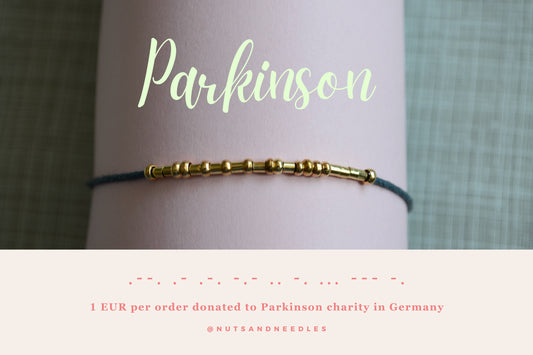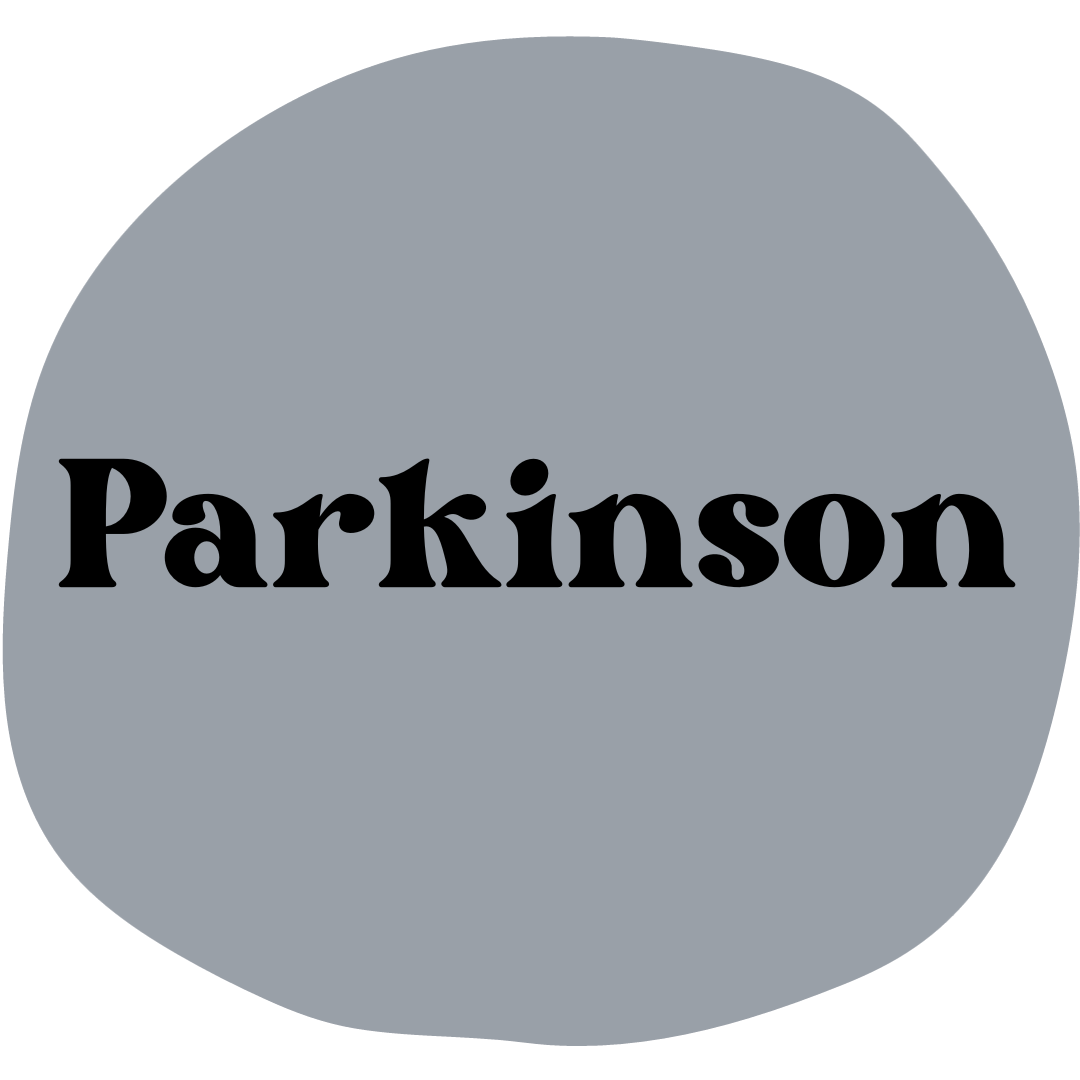written by Sarah Doleschal (nuts&needles)
Hey there! Today, let's take a moment to talk about two crucial topics often overshadowed - Mental Health Awareness and Parkinson's. Life can sometimes feel like a complex dance, and for those dancing with Parkinson's, this dance becomes a unique challenge. Let's dive deeper to understand how this disorder develops, the challenges it brings, and how together we can build a supportive community.
How does the disease develop?
The melody of Parkinson's begins softly, almost imperceptibly, but over time, it becomes louder and more intense. This neurodegenerative disorder develops as nerve cells in the brain responsible for producing the neurotransmitter dopamine gradually die off. This loss leads to a dopamine deficiency, resulting in the characteristic motor symptoms of Parkinson's.
Parkinson's can be attributed to genetic predisposition, but environmental factors also play a role. The combination of genetic predispositions and environmental triggers sets the dance in motion, where the brain gradually loses its ability to control movements.
Some research also suggests that stress and mental strain may influence the development of Parkinson's. The interaction between Mental Health and Parkinson's becomes a complex web that requires deeper understanding.
What challenges do individuals face?
The Invisible Storm Within
Parkinson's is not confined to motor symptoms alone. The invisible impacts, such as depression, anxiety, and cognitive impairments, create a storm within. Being aware that the dance of the mind is as significant as external movements is crucial.
Battling Everyday Normalcy
Every day is a battle when living with Parkinson's. Everyday activities that others take for granted become challenges. From a simple cup lift to walking - individuals with Parkinson's struggle against their own bodies.
Social Withdrawal
Uncertainty about motor symptoms often leads to social withdrawal. The feeling of not being understood intensifies the emotional burden. Friends and family play a crucial role in supporting individuals in this struggle.
Financial Strain
Treating Parkinson's can be costly. Medications, therapies, and potentially necessary lifestyle adjustments put financial resources under pressure. The challenge is to manage this strain while maintaining a reasonable quality of life.
The Emotional Toll
The perpetual dance with Parkinson's takes an emotional toll. Losing control over one's body and uncertainty about the future can become an emotional rollercoaster. A supportive environment is, therefore, invaluable.
How can Parkinson's be treated?
The treatment of Parkinson's is multidimensional. Medications, physiotherapy, and complementary approaches such as dance and music therapy can contribute to improving the quality of life. Close collaboration with doctors and therapists is crucial to creating individualized treatment plans. Moreover, research is constantly gaining momentum to discover new approaches to Parkinson's treatment.
DOs in dealing with affected individuals
Accept Individuality
Every dance with Parkinson's is unique. Accept the individuality of experiences and respect the personal boundaries of those affected.
Listen without Judgment
Sometimes, it takes more than words. Listen attentively without judging. The space you create for those affected is often more healing than well-intentioned advice.
Be Patient and Empathetic
Patience is a virtue in dealing with Parkinson's. Be empathetic and acknowledge the challenges individuals face.
Offer Practical Help
From everyday tasks to emotional support - practical help can make a significant difference. Small gestures can have substantial impacts.
Build a Supportive Community
Parkinson's is not just an individual challenge but one that needs a community. Build a supportive community based on understanding and empathy.
DON'Ts in dealing with affected individuals
Avoid Pity
Pity can be demeaning. Avoid showing pity and instead, respect the strength of those affected.
Don't Overlook Steps
Motor symptoms may be noticeable, but the invisible challenges are equally important. Don't overlook the steps individuals take daily.
Avoid Excessive Advice
Less is often more. Avoid excessive advice and recognize that you don't always have to have a solution.
Don't Treat as "Different"
Parkinson's doesn't make individuals "different." Continue treating them with respect and dignity, without reducing them to their condition.
Don't Feign Understanding
Honesty is key. If you don't understand something, don't feign understanding. Instead, ask and learn together.
Parkinson's and Mental Health Awareness are two sides of the same coin. The dance of the mind may be complex, but together, we can build a supportive community that is not only aware of the challenges but also finds ways to make the dance more bearable. Let's together find the rhythm that brings hope and understanding into this dance. What steps will you take to support this journey?


